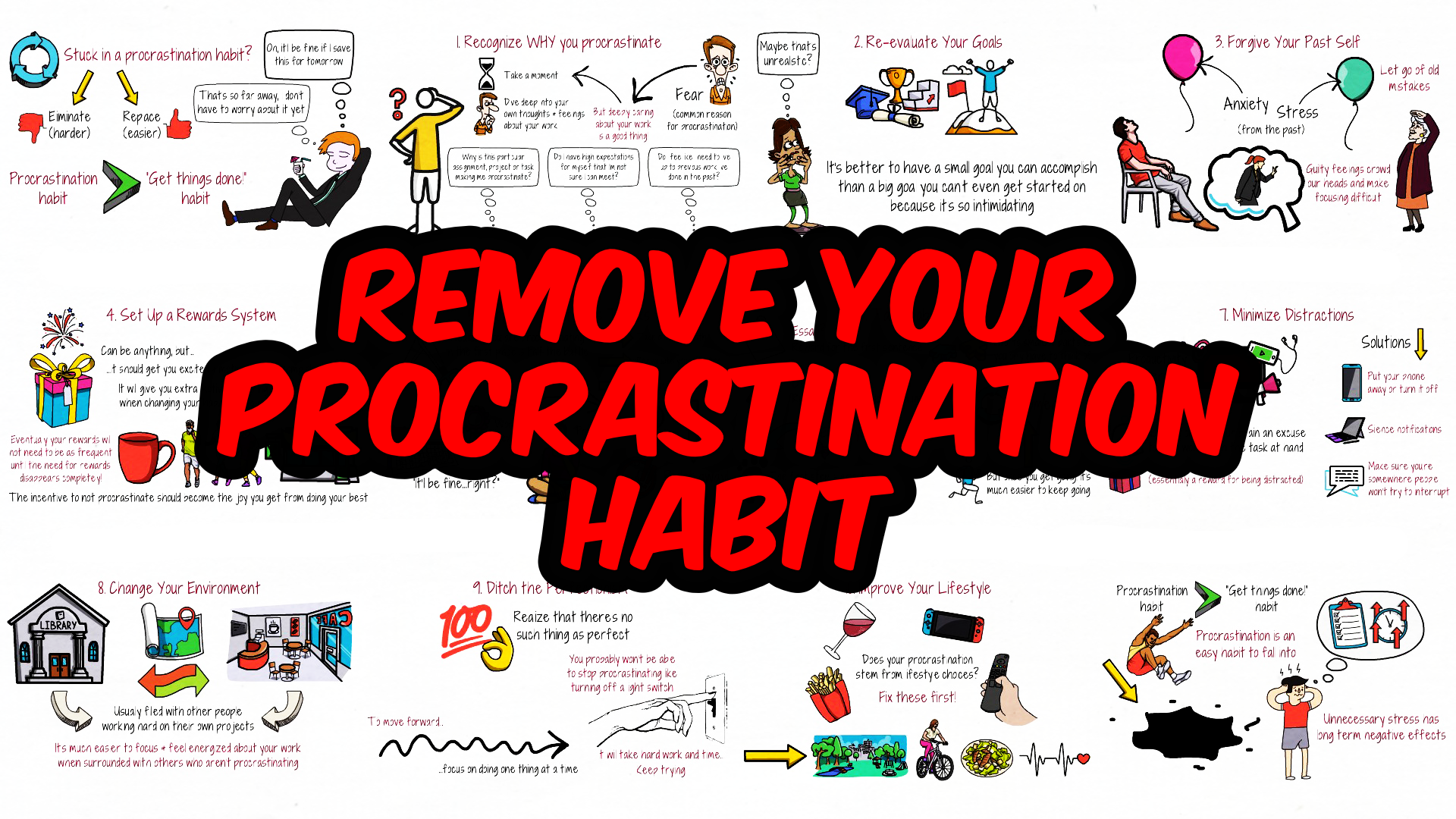How To Break The Procrastination Habit

The looming deadline, the mounting anxiety, the creeping sense of guilt – these are familiar feelings for anyone who struggles with procrastination. But experts say breaking free from this cycle is possible, and it starts with understanding the root causes and implementing practical strategies.
This article delves into the science of procrastination, exploring its psychological underpinnings and offering evidence-based techniques to overcome this pervasive habit. It is not about laziness, but rather a complex interplay of emotions, anxieties, and flawed coping mechanisms.
Understanding Procrastination
Procrastination is generally defined as the voluntary delay of an intended action despite expecting to be worse off for the delay, according to Dr. Piers Steel, a leading researcher in the field. This behavior is not simply about poor time management; it's often rooted in emotional regulation.
Many individuals procrastinate because they are trying to avoid negative feelings associated with the task, such as fear of failure, perfectionism, or boredom. A study published in the journal Psychological Science found a strong correlation between procrastination and low levels of conscientiousness and self-regulation.
Practical Strategies for Overcoming Procrastination
One of the most effective techniques is breaking down large, daunting tasks into smaller, more manageable steps. This approach, advocated by time management experts, makes the overall goal less intimidating and provides a sense of accomplishment with each completed step.
Timeboxing, a technique where you allocate specific blocks of time for particular tasks, can also be beneficial. "Scheduling your time helps you to feel in control," explains Julie Morgenstern, a time management consultant and author. By setting realistic time limits, you create a sense of urgency and minimize distractions.
Tackling Perfectionism
Perfectionism is a major driver of procrastination for many people. The fear of not meeting impossibly high standards can paralyze individuals and lead them to avoid starting a task altogether. It also causes the task to take longer, or be restarted over and over, delaying deadlines.
Cognitive Behavioral Therapy (CBT) techniques can help address perfectionistic thinking. "CBT helps to identify and challenge negative thought patterns," says Dr. Christine Purdon, a psychology professor at the University of Waterloo. By reframing negative thoughts and focusing on progress rather than perfection, individuals can reduce anxiety and overcome procrastination.
Combating Distractions
In today’s digital age, distractions are ubiquitous. Social media, email notifications, and endless internet browsing can derail even the most well-intentioned efforts. Minimize distractions by creating a dedicated workspace, turning off notifications, and using website blockers.
The Pomodoro Technique, which involves working in focused 25-minute intervals followed by short breaks, can be a powerful tool for staying on track. This method helps to maintain concentration and prevent burnout, promoting consistent progress.
The Long-Term Impact
Overcoming procrastination is not just about meeting deadlines; it's about improving overall well-being. Chronic procrastination can lead to increased stress, anxiety, and decreased productivity, affecting both personal and professional life.
By implementing effective strategies and addressing the underlying emotional factors, individuals can break free from the procrastination cycle and achieve their goals. The journey towards overcoming procrastination may be challenging, but the rewards of increased productivity, reduced stress, and enhanced self-esteem are well worth the effort.
Ultimately, it is about self-compassion and understanding. Recognizing that procrastination is a common struggle and practicing self-forgiveness can pave the way for lasting change and a more fulfilling life.


















